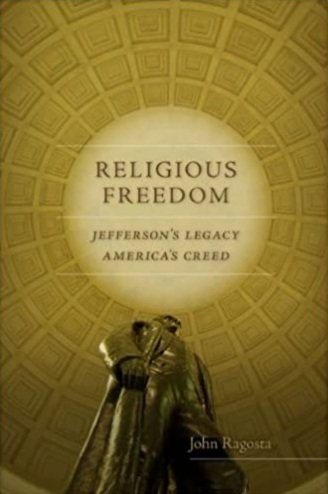
Religious Freedom
Jefferson’s Legacy, America’s Creed
ABOU T THE BOOK
For over one hundred years, Thomas Jefferson and his Statute for Establishing Religious Freedom have stood at the center of our understanding of religious liberty and the First Amendment. Jefferson’s expansive vision―including his insistence that political freedom and free thought would be at risk if we did not keep government out of the church and church out of government―enjoyed a near consensus of support at the Supreme Court and among historians, until Justice William Rehnquist called reliance on Jefferson "demonstrably incorrect." Since then, Rehnquist’s call has been taken up by a bevy of jurists and academics anxious to encourage renewed government involvement with religion.
In Religious Freedom: Jefferson’s Legacy, America’s Creed, the historian and lawyer John Ragosta offers a vigorous defense of Jefferson’s advocacy for a strict separation of church and state. Beginning with a close look at Jefferson’s own religious evolution, Ragosta shows that deep religious beliefs were at the heart of Jefferson’s views on religious freedom. Basing his analysis on that Jeffersonian vision, Ragosta redefines our understanding of how and why the First Amendment was adopted. He shows how the amendment’s focus on maintaining the authority of states to regulate religious freedom demonstrates that a very strict restriction on federal action was intended. Ultimately revealing that the great sage demanded a firm separation of church and state but never sought a wholly secular public square, Ragosta provides a new perspective on Jefferson, the First Amendment, and religious liberty within the United States.
ENDORSEMENTS & REVIEWS
“Ragosta uses clever prose and an easy-to-follow writing style…. As a result, Ragosta successfully shows that religious freedom was indeed one of Jefferson's greatest legacies.” T.K. Byron, Choice
“John Ragosta offers a robust defense of the Jeffersonian legacy of religious liberty, using his careful exploration of its history to help us understand contemporary debates about the proper roles of church and state in American life.” Joyce Appleby, UCLA, author of The Relentless Revolution: A History of Capitalism
“Ragosta keeps a very tight focus.... The final chapter, considering Jefferson's legacy, and the way it's been pushed and pulled to meet the requirements of those who wish to appear to be in line with their country's founding father,… provides a thought-provoking conclusion.” Publishers Weekly
“At a time when there is a loud chorus singing the praises of an opposing view--a song dedicated to bringing religion into schools, the workplace, and politics--the author's research proves refreshing and reassuring.... The book I have reviewed is splendid. It is highly recommended.” Daily Progress
“Religious Freedom is a wide-ranging, nuanced study of Thomas Jefferson’s views on religious freedom. Ambitiously, it not only situates Jefferson in his eighteenth-century context, along with James Madison, but also measures his constitutional impact and legacy in the nineteenth and twentieth centuries.... Blending a careful consideration of professed principles with behavioral evidence, Ragosta reminds readers that Jefferson’s vision was consistent: he favored a secular government but not a secular society.” Nancy L. Rhoden, Journal of Southern History
